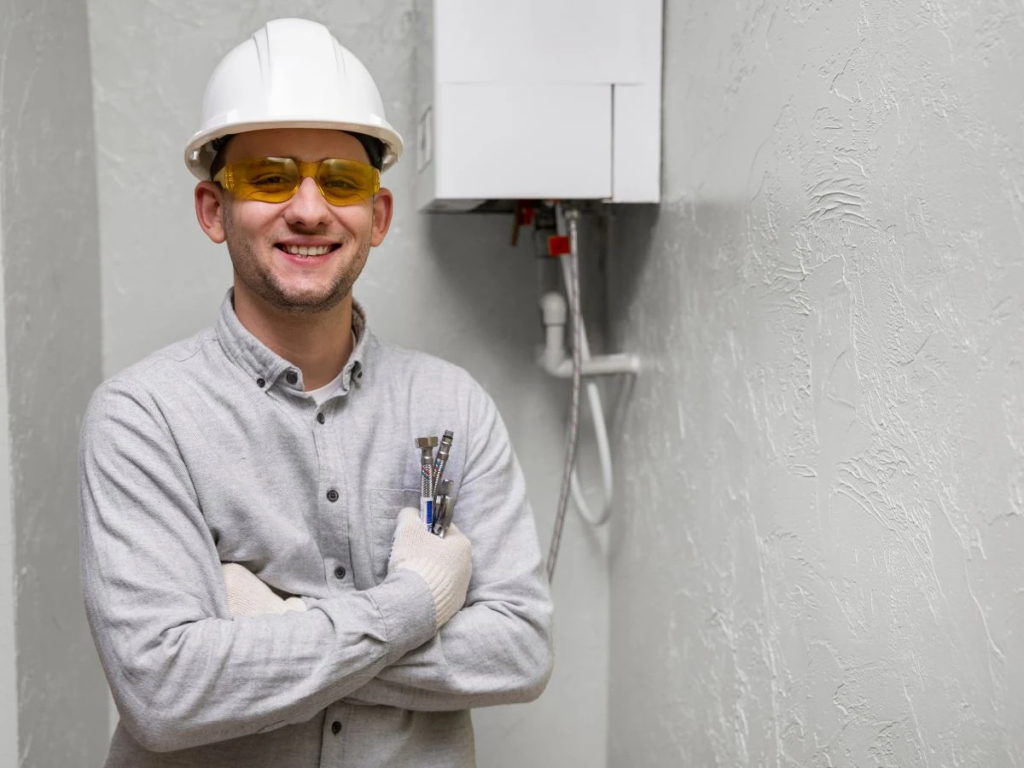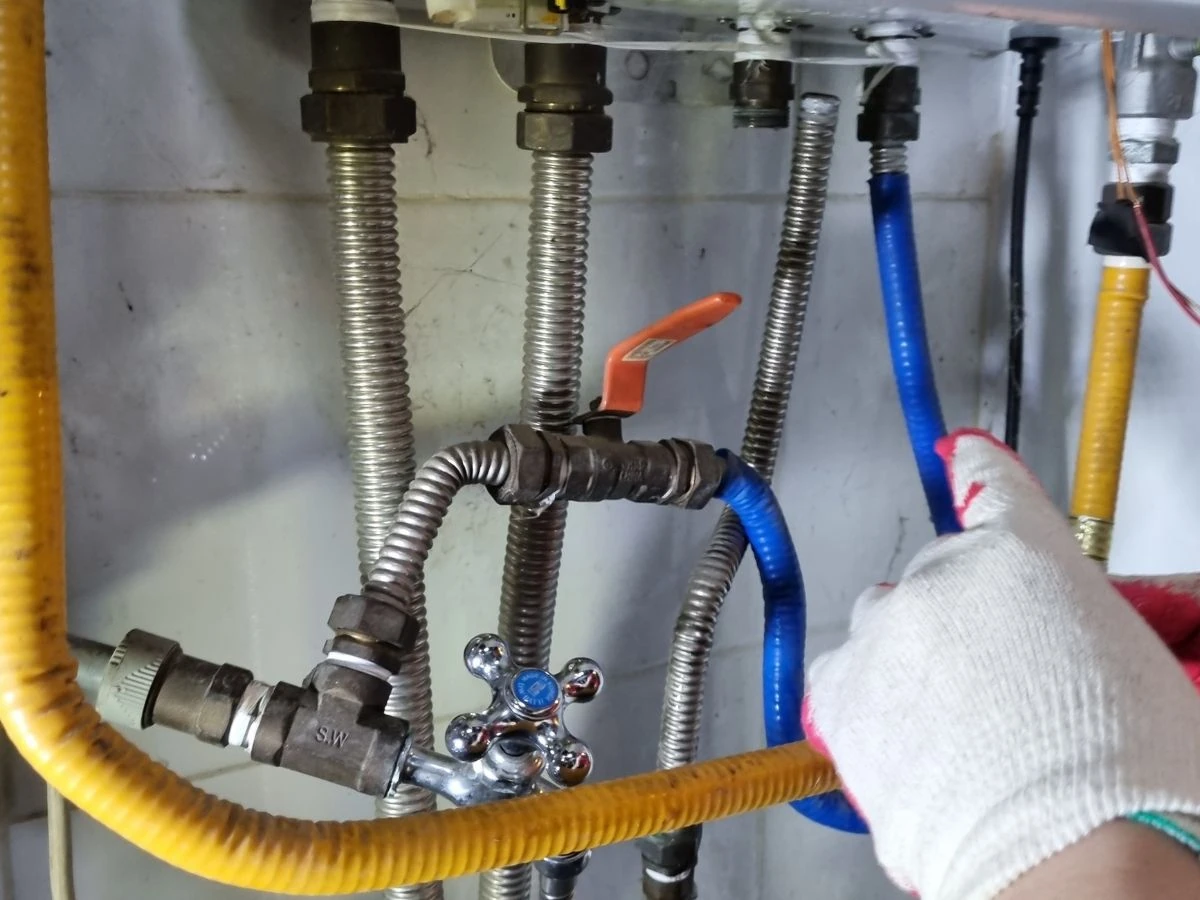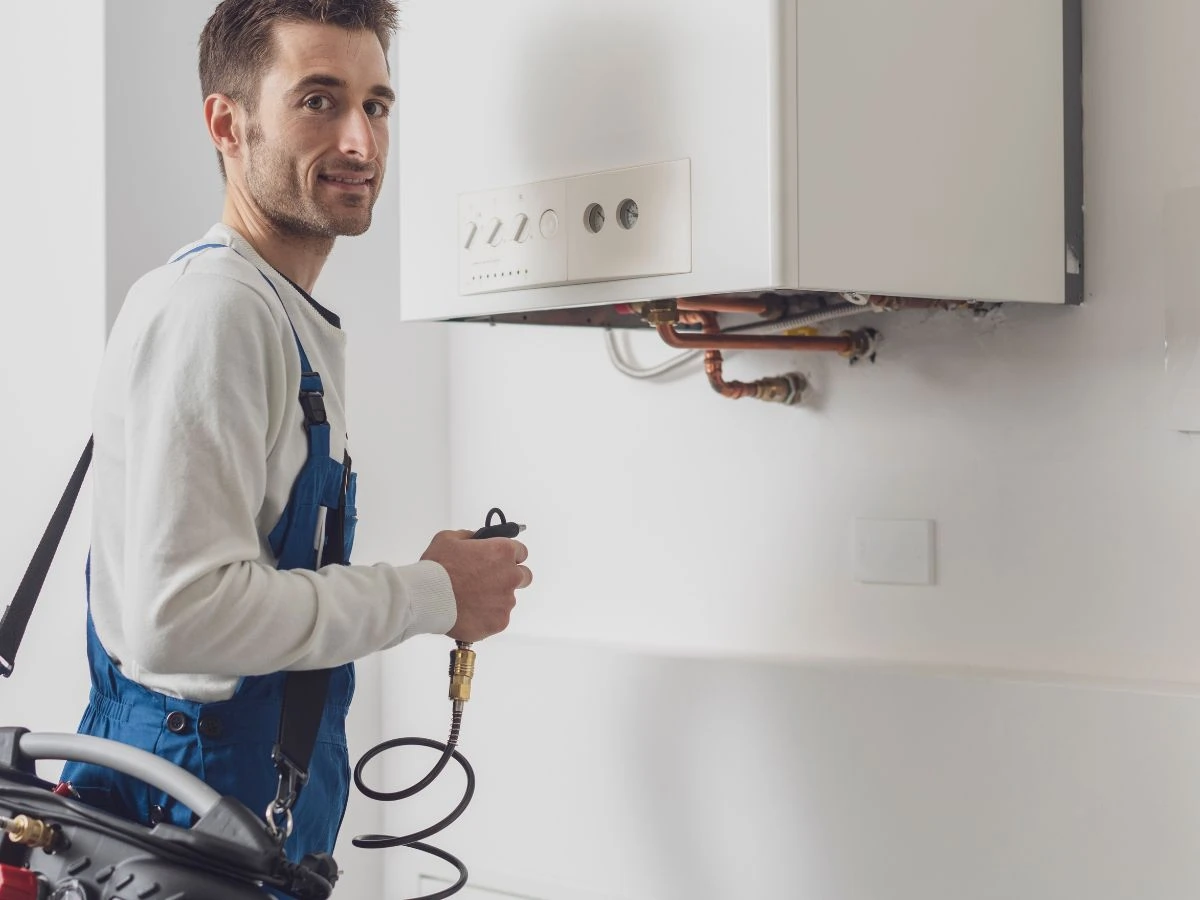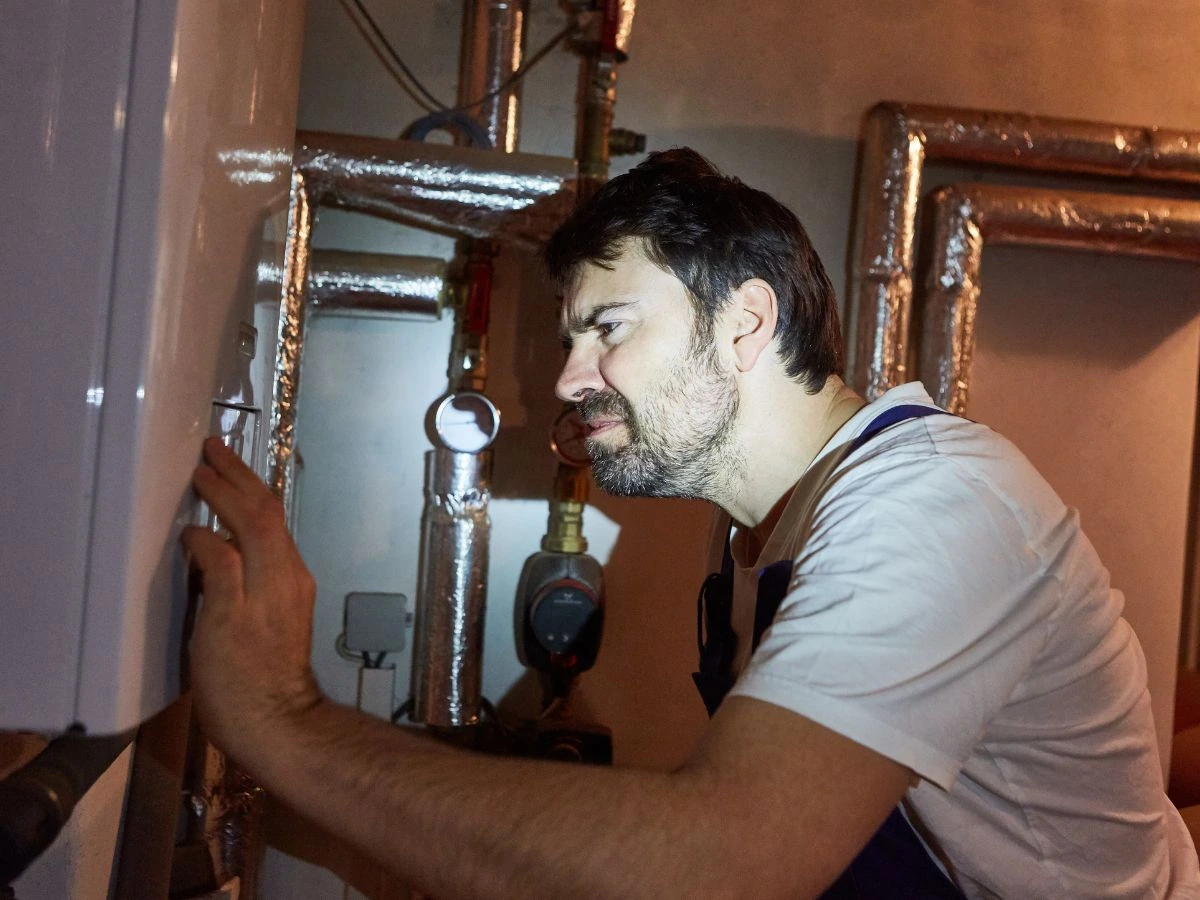Boilers Maintenance Checklist: Ensure Your Heating System is Ready for Winter
As temperatures drop across Newcastle and the North East, preparing your boiler for winter should be every homeowner’s priority. Your heating system has likely been dormant through the warmer months, and now it’s time to ensure it’s ready to keep your family warm and comfortable when you need it most.
Regular maintenance is key to avoiding the inconvenience and expense of a boiler breaking down unexpectedly, saving you money and hassle in the long run. A well-maintained boiler operates more efficiently, costs less to run, and is far less likely to break down during bitter winter nights. This comprehensive checklist will guide you through essential winterisation steps, helping you identify potential issues before they become costly problems.
Understanding Boiler Systems
Boiler systems are at the heart of your home’s heating and hot water supply, working tirelessly behind the scenes to keep you comfortable. A typical boiler system includes the boiler itself, a network of radiators, connecting pipes, and a set of controls that manage temperature and timing. The boiler heats water, which is then circulated through the radiators to provide warmth throughout your home.
Regular boiler servicing is essential to keep your boiler system running efficiently and to prevent unexpected breakdowns. An annual boiler service allows a professional to check for early signs of wear or potential issues, helping you avoid major problems and costly boiler repairs down the line. By ensuring your heating and hot water systems are in top condition, you can relax knowing your home will stay warm and comfortable all winter long.
Boiler System Components
A well-functioning boiler system relies on several main components working together seamlessly. The boiler, often powered by gas, uses a heat exchanger to transfer heat to the water. This hot water is then distributed through pipes to radiators located throughout your home, delivering consistent and comfortable heat.
Radiators play a crucial role in dispersing warmth, while the pipes carry hot water from the boiler to each radiator and back again. Controls such as thermostats and timers allow you to set your desired temperature and schedule, ensuring your heating system operates efficiently and only when needed. Regular maintenance and annual boiler servicing are vital to keep all these components in good working order, helping to maintain optimal heat output and system reliability.
Why Winter Boiler Preparation Matters
Winter places the greatest demand on your heating system, with boilers working harder and longer than at any other time of year. Without proper preparation, you risk expensive emergency repairs, higher energy bills, and safety hazards. Proper preparation also helps keep your boiler energy efficient and ensures that any necessary repairs are covered under the manufacturer’s warranty.
Statistics show that boiler breakdowns increase by over 60% during the first cold snap of winter, largely because homeowners haven’t performed basic maintenance checks. Many breakdowns are entirely preventable with simple preparation steps that take just a few hours but can save hundreds of pounds in emergency repairs and help prevent future repairs.
Regular maintenance also extends your boiler’s lifespan significantly. A well-maintained boiler can operate efficiently for 15-20 years, whilst neglected systems often require replacement after just 8-10 years. When a new boiler installation costs several thousand pounds, preventive maintenance becomes invaluable.
Essential Pre-Winter Boiler Checks
Visual Inspection and Safety Checks
Start with a thorough visual inspection of your boiler and surrounding area. Look for signs of wear, damage, or corrosion. Check for water stains or rust marks indicating leaks, and ensure the area around your boiler is clear – boilers need adequate ventilation to operate safely.
Examine the flue outlet outside your home, typically visible on an external wall or roof. The flue should be clear of debris, bird nests, or obstructions. A blocked flue isn’t just an efficiency issue – it’s a serious safety hazard that can lead to carbon monoxide build-up.
Pay attention to unusual odours around your boiler. Whilst a slight smell when first firing up after months of inactivity is normal, persistent gas odours or burning smells require immediate professional attention.
Testing Your Heating System
Before cold weather arrives, test your entire heating system thoroughly. Turn on your heating and check that all radiators warm up evenly and reach expected temperatures. Cold spots often indicate trapped air or sludge build-up, both reducing efficiency and straining your boiler.
Test each radiator individually – they should start warming within 10-15 minutes. If some remain cold or only warm partially, this suggests circulation problems needing attention before winter.
Check your boiler pressure gauge, prominently displayed on most modern boilers. Pressure should typically read between 1 and 2 bar when the system is cold. Low pressure is one of the most common boiler problems and can usually be resolved by re-pressurising the system, though persistent pressure loss indicates leaks requiring professional attention.
Thermostat and Controls Assessment
Test your thermostat by setting different temperatures and ensuring the heating responds appropriately. If you have programmable controls, verify timer settings are correct for your winter routine.
Consider whether your heating schedule still suits your needs. Winter preparation is perfect for optimising settings for both comfort and efficiency. Modern programmable thermostats can reduce heating costs by up to 15% when used effectively.
If your thermostat is over 10 years old, consider upgrading to a smart thermostat. These devices learn your habits, can be controlled remotely, and often pay for themselves through improved efficiency within just two years.
Professional Boiler Servicing
The Importance of Annual Servicing
Whilst homeowners can perform many basic checks, there’s no substitute for professional boiler servicing by a Gas Safe registered engineer. Annual servicing is essential for safety, efficiency, and maintaining your boiler warranty. Most manufacturers require annual servicing to keep warranties valid.
A professional service goes beyond what homeowners can safely check. Engineers have specialised tools and training to test gas pressures, combustion efficiency, and safety systems invisible to the untrained eye. They can identify developing problems months before they cause breakdowns.
What Happens During Professional Service
During comprehensive servicing, qualified engineers perform dozens of safety and efficiency checks. They examine the heat exchanger for corrosion or blockages, test all safety devices, and verify clean, efficient gas burning. The flue system receives particular attention as it’s critical for safe operation. The inspection also includes checking all boiler components and boiler parts for wear or damage.
Engineers check internal components homeowners cannot access, including fans, pumps, and sensors controlling boiler operation. Cleaning and, if necessary, replacing boiler parts is carried out during the service. They clean components and adjust settings for optimal performance. Any worn parts are identified and replaced before complete failure.
DIY Maintenance Tasks
Safe Tasks You Can Perform
Whilst gas work must always be left to professionals, homeowners can safely perform several important maintenance tasks. Bleeding radiators is perhaps the most valuable skill every homeowner should master. Trapped air reduces heating efficiency and makes boilers work harder.
To bleed radiators, ensure heating is off and the system cool. Use a radiator key to slowly open the bleed valve until you hear air hissing out. Once water flows steadily, close the valve immediately. Start with the radiator furthest from your boiler and work back, checking boiler pressure after bleeding several radiators.
Maintaining System Efficiency
Keep radiators clear of furniture and curtains for proper heat circulation. Blocked radiators work harder to heat rooms, forcing boilers to run longer and consume more energy. Keeping radiators clear also helps your boiler remain energy efficient, reducing unnecessary energy costs. Even a sofa against a radiator can reduce effectiveness by 20% or more.
Consider fitting radiator reflector panels behind radiators on external walls. These inexpensive additions reflect heat back into rooms rather than allowing escape through walls, improving efficiency by up to 10%.
Maintaining Your Condensing Boiler
Condensing boilers are known for their energy efficiency, but they require regular maintenance to keep performing at their best. Annual boiler servicing by a gas safe registered engineer is essential for these modern boilers. During a service, the engineer will carry out a visual inspection, clean key components, and check the pressure gauge and all safety devices to ensure everything is operating safely.
It’s important to monitor your condensing boiler for any signs of corrosion or damage, especially on the heat exchanger and other internal parts. Regular maintenance helps prevent breakdowns and ensures your boiler remains safe and efficient. Always rely on a gas safe registered engineer for any repairs or servicing, as they have the expertise to carry out the work safely and keep your boiler running smoothly.
Warning Signs Requiring Professional Attention
Recognising Serious Issues
Some boiler problems require immediate professional attention. Strange noises – particularly banging, whistling, or gurgling – often indicate serious developing issues. Whilst some noise is normal, sudden changes in sound patterns warrant investigation.
Water leaks around boilers are always serious, regardless of size. Even small drips can indicate failing seals or corrosion that will worsen rapidly. Leaks can cause extensive home damage if left unaddressed.
Yellow or orange flames (visible through viewing windows) instead of normal blue flames indicate incomplete combustion. This serious safety issue can produce dangerous carbon monoxide and requires immediate professional attention. Never attempt to adjust gas settings yourself.
Emergency Situations
If you smell gas anywhere, don’t hesitate – turn off gas supply at the meter, open windows and doors, avoid electrical switches, and call the National Gas Emergency Service immediately on 0800 111 999. Gas leaks are potentially life-threatening.
Carbon monoxide symptoms in your family – headaches, dizziness, nausea, or fatigue improving when leaving the house – could indicate boiler problems. Install carbon monoxide detectors near boilers and sleeping areas, treating any alarm as serious emergency requiring immediate evacuation and professional inspection.
Troubleshooting Common Boiler Problems
Even with regular boiler servicing, issues can sometimes arise. Common boiler problems include frozen pipes, low boiler pressure, and malfunctioning controls. If you notice your heating system isn’t working as it should, or if the pressure drops unexpectedly, it’s important to act quickly to avoid costly repairs.
A gas safe registered engineer should always be your first call for diagnosing and fixing boiler problems. They can safely address issues like frozen pipes or persistent pressure loss, ensuring your boiler is repaired correctly. Regular servicing helps catch these problems early, but knowing how to spot warning signs—such as unusual noises, error codes, or inconsistent heating—can help you get your boiler fixed before small issues turn into major repairs.
Conclusion
Preparing your boiler for winter protects your family’s comfort, safety, and financial investment in your heating system. These checklist steps prevent most winter heating problems and ensure efficient operation throughout cold months.
Remember that whilst you can perform many basic checks yourself, professional servicing by Gas Safe registered engineers remains essential for safety and optimal performance. The small investment in annual servicing and preventive maintenance pays dividends in reliability, efficiency, and peace of mind.
If you’re in Newcastle or the North East and need professional boiler servicing, repairs, or advice, don’t wait until problems develop. Premier Gas’s experienced, Gas Safe registered engineers provide comprehensive boiler services with transparent pricing and over 20 years of local expertise. Contact us today to ensure your heating system is ready for whatever winter brings.





